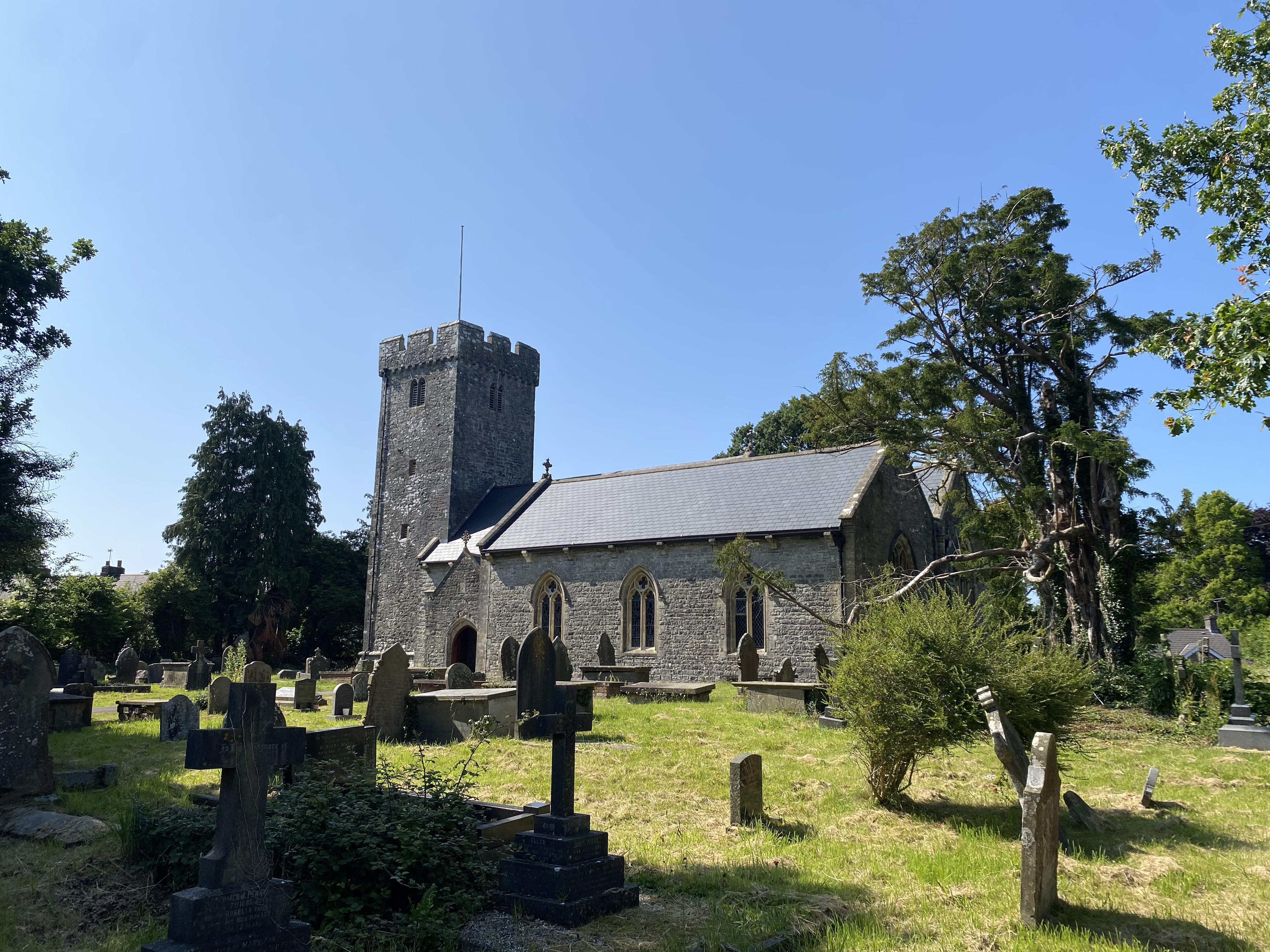St Bleddian
St Lythans, City of Cardiff
St Bleddian's is an ancient, rural church on the outskirts of Cardiff with a Norman font decorated with chevrons and a large addition built in the 1600s.

The resting place of three Welsh families; 'Makers of Nations'.
St Nicholas, Glamorgan
Our rare pre-Reformation Sanctus bell, high in the rafters, would have rung through the intonement of priests in Latin and French, incomprehensible to the peasants, crowded and standing on a dirt floor, for them to approach for the Eucharist.
By the 1860s the servants of the local land-owning families would have visited to place the bibles of their masters ready for their arrival, lighting the latest in fashionable lamps powered by newly discovered oil from Pennsylvania. The farm labourers and their families would be there, no choice offered, but in hope of a better life to come. The Registers from the 1760s onwards, now in the strong box, record the weddings, christening and funerals of all, as equals.
And of the time in between? Here is where it gets interesting. Enter the Tudor Lady Chapel, as dressed down as could be, and you will see, at the furthest point behind the organ (a unique instrument), the memorials (gravestones and a column) of the only two families that really counted in this part of the Vale in the 17th and 18th centuries, the Buttons of Dyffryn and the Gwinnetts of Cottrell, side by side, in death as in life. The former supplied an explorer, Sir Thomas, the first European to land on the Northwest Passage mainland, naming it New Wales. The latter, Button Gwinnett, the second to sign the American Declaration of Independence after John Hancock.
Returning through the Lady Chapel: the Tylers, an admiral, a member of Nelson's Band of Brothers and Trafalgar veteran; a major general who fought the Red River Up-rising to secure a future for Canada; and a lieutenant-colonel DSO who lost his life in a battle a month after the Armistice was signed in 1918.
Outside in the churchyard, John Cory of Dyffryn who supplied Welsh steam coal to 80 ports worldwide, enhancing the development of the colonies in the late 19th century.
Together they are “The Welsh Makers of Nations”.
St Lythans, City of Cardiff
St Bleddian's is an ancient, rural church on the outskirts of Cardiff with a Norman font decorated with chevrons and a large addition built in the 1600s.
St Fagans, City of Cardiff
St Teilo's church is believed to have been built during the late 12th or 13th century on the site of an earlier Celtic church, over the ensuing centuries the building was altered and extended.
St Fagans, City of Cardiff
Probably first built as a barn during the mid 18th century, the building was acquired in 1777 by the Unitarians for use as a meeting house or chapel.